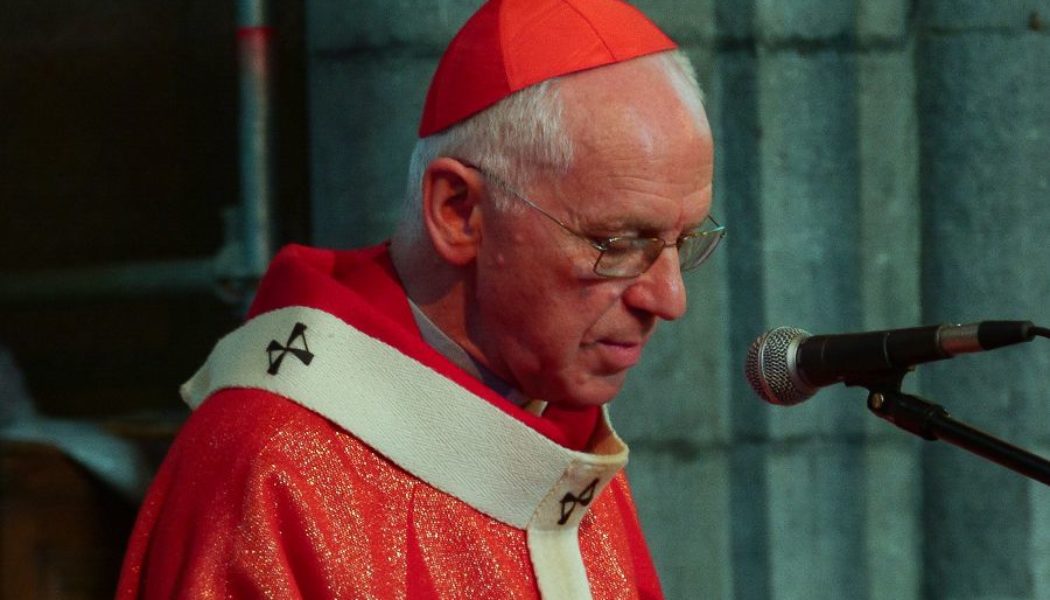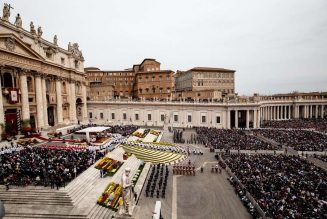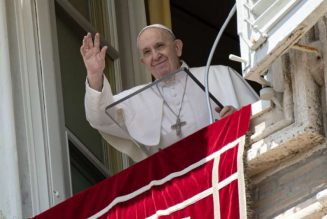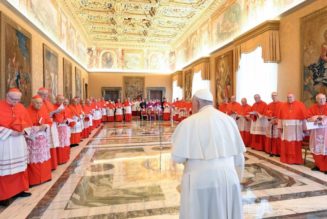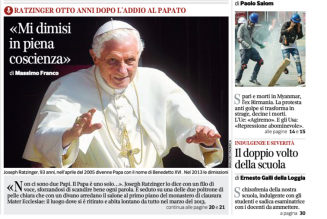
Belgian bishops published Tuesday a new document on the pastoral care of Catholics who identify as LGBT, which includes a text allowing for a ritual blessing of same-sex couples.
The bishops of Flanders said that the three-page document, entitled “Being pastorally close to homosexuals: For a welcoming Church that excludes no one,” aims to “structurally anchor [the Church’s] pastoral commitment to homosexual persons and couples.”
The document was signed by the Flemish bishops, who belong to Belgium’s majority ethnic group. They are led by Cardinal Jozef De Kesel, president of the Belgian bishops’ conference, which also includes bishops from the country’s French-speaking minority.
The Flemish bishops’ text said that homosexual couples who choose to live “in lasting and faithful union with a partner” deserve “appreciation and support.”
“This relationship, although not a Church marriage, can also be a source of peace and shared happiness for those involved,” the bishops wrote.
CathoBel, the official website of the French-speaking Catholic Church in Belgium, said Sept. 20 that the new document applied only to Belgium’s Flanders region, but noted that “At the beginning of 2022, the [French-speaking] Diocese of Liège published a brochure entitled ‘Welcoming, accompanying, carrying in prayer the life project shared by homosexual persons’ — which was presented to Pope Francis in July.”
“Perhaps a common approach by the French-speaking bishops could also soon see the light of day,” the site said.
The Flemish bishops’ document, which repeatedly referred to Pope Francis’ 2016 apostolic exhortation Amoris laetitia, concluded with a “Prayer for love and fidelity” — which has been widely received as being a liturgy for the blessing of same-sex couples.
In a preamble to the prayer, the bishops wrote: “During pastoral meetings, the request is often made for a moment of prayer to ask God that He may bless and perpetuate this commitment of love and fidelity. What content and form that prayer can concretely take are best discussed by those involved with a pastoral leader. Such a moment of prayer can take place in all simplicity. Also, the difference should remain clear from what the Church understands by a sacramental marriage.”
After an opening prayer and Scripture reading, the bishops suggested that the two people involved should “express before God how they are committed to one another.”
This would then be followed by the “prayer of the community,” in which those present ask “that God’s grace may work in them to care for each other and for the wider community in which they live.”
The prayer would conclude with intercessions, an Our Father, a final prayer, and a blessing.
The French Catholic newspaper La Croix reported in 2018 that Cardinal De Kesel, the archbishop of Mechelen-Brussels, had signaled openness to a prayer ceremony for same-sex couples, but said that it could not be a “religious marriage” or an “ecclesiastical blessing that too closely resembles the blessing of a marriage.”
Cardinal De Kesel offered his resignation to Pope Francis in June after he turned 75, but remains in post.
The German version of Vatican News reported that a spokesman for the archdiocese of Mechelen-Brussels had said that the model prayer was not submitted to the Vatican in advance of its publication.
The Flemish bishops’ document appeared days after German bishops voted overwhelmingly in favor of a four-page document calling for “a re-evaluation of homosexuality in the Magisterium” during a session of the country’s controversial “synodal way.”
The Belgian bishops are due to travel to Rome in November for their ad limina visit, which was delayed due to the coronavirus pandemic and will be their first since 2010.
During their trip, the bishops will visit Vatican departments, possibly including the Dicastery for the Doctrine of the Faith (DDF), which reaffirmed last year that the Church does not have the power to offer liturgical blessings for same-sex unions.
The DDF’s reaffirmation came in response to repeated calls from bishops in Germany, where church blessings for same-sex couples have been a central agenda item of the ongoing synodal way. The response was signed by the dicastery’s prefect, Cardinal Luis Ladaria Ferrer, and published with an explanatory note saying that Pope Francis had given his personal approval for the document to be published.
In addition to synodal proposals, several German bishops have stated publicly their support for introducing liturgical same-sex blessings, despite Vatican interventions on the topic.
Last year, Bishop Peter Kohlgraf of Mainz reiterated his support for the recognition of same-sex unions by the Church and defended his endorsement of a book of blessings and liturgical rites for same-sex unions.
The DDF’s 2021 response cited both the final document from the 2019 youth synod and Amoris laetitia.
It said that “it is not licit to impart a blessing on relationships, or partnerships, even stable, that involve sexual activity outside of marriage,” which includes both same-sex unions, and stable heterosexual unions that are not valid marriages, including merely civil unions contracted by Catholics after a divorce.
The Vatican’s doctrinal department reiterated that the Church rejects any form of “unjust discrimination” against homosexual people, and also recognized that those calling for blessings of same-sex unions often do so out of “a sincere desire to welcome and accompany homosexual persons.”
But the DDF said, “When a blessing is invoked on particular human relationships, in addition to the right intention of those who participate, it is necessary that what is blessed be objectively and positively ordered to receive and express grace, according to the designs of God inscribed in creation, and fully revealed by Christ the Lord.”
The doctrinal dicastery went on to explain that, although “positive elements” can be identified in some same-sex unions “which are in themselves to be valued and appreciated,” those aspects “cannot justify these relationships and render them legitimate objects of an ecclesial blessing, since the positive elements exist within the context of a union not ordered to the Creator’s plan.”
In response to the DDF’s statement, and despite Pope Francis’ personal order for its publication, some German priests staged a day of protest, blessing hundreds of same-sex couples in their churches across the country in May last year.
While senior German bishops denounced the nationwide protest blessings, and struck a conciliatory tone towards the DDF, a leading Belgian bishop denounced the Vatican’s statement after its release.
Saying that it had come from an “ideological backroom,” Bishop Johan Bonny of Antwerp said he felt “ashamed of my Church” over the DDF’s text.
“Intellectually, this does not even reach the level of high school,” Bishop Bonny said at the time.
Belgium’s national synod synthesis, published in July, urged the Church to respond to homosexual couples’ “request for recognition (ritual and social) based on an interpretation of relationships and sexuality more in line with the commandment of love.”
Join Our Telegram Group : Salvation & Prosperity
